


|
| ||
|
|
|
|
|
|
SILVER EDITION

|


|
SILVER EDITION |
|
Publication History
Cover Overview |
Reviews and Previews
Chapter Overview |
Word Cloud
[NEW]
First Chapter Preview [NEW] |
Cover Gallery (year)
Cover Gallery (edition) |
 Cover Overview
Cover Overview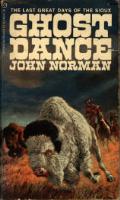
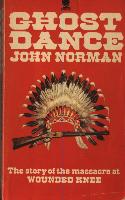
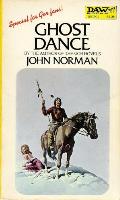
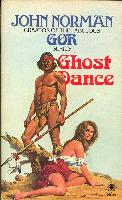
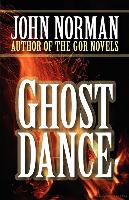
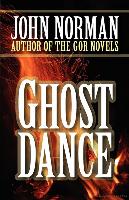
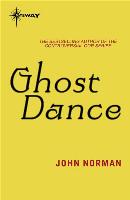
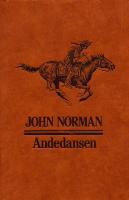
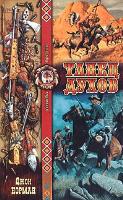
 Reviews and Previews
Reviews and PreviewsIn Ghost Dance, John Norman didn't use any titles for the 24 chapters in the book.
 Word Cloud
Word CloudThe image below shows the most often used words and terms within Ghost Dance. The larger the size, the more often the word or term occurs in the text.
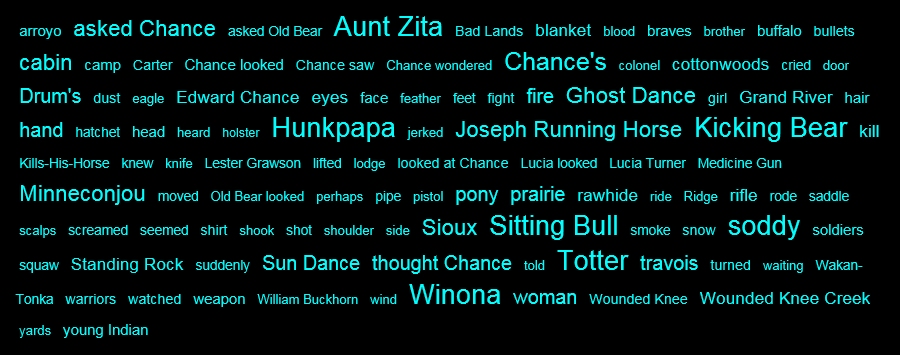
 First Chapter Preview
First Chapter Preview
Chapter One
Old Bear rode alone.
Not moving his hands on the nose rope of his pony he let the animal take his own pace, biting at the grass when it would, not hurrying.
He rode the north bank of the Grand River, keeping with it as it wound its muddy trail through the dried grass and brush of Standing Rock.
It was right that Old Bear should ride alone, for his ride, his quest, was holy, and its meaning lay between himself and Wakan-Tonka, the Mystery. And it was right that he should ride this Sunday morning, as he did each Sunday morning, for this was the medicine day of the white man, and Wakan-Tonka had favored the white man and on this day his ear might be open, did he care to listen any longer to the medicine song of one of his forgotten children.
Old Bear did not see well these days and the clouds of the blue sky blurred into a mist that was like the roiling of the blizzard when it is first seen over the prairie, and even the grasses seemed far away and vague and the cottonwoods by the banks of the Grand River with their slick leaves glistened like glass and beads in the sun.
He sang to himself, his medicine song, as he rode.
Perhaps today would be the day when he would find the sign of the white buffalo.
* * *
Last night, as was his custom, Old Bear had left his daughter, a girl by the name of Winona, his wooden cabin, his handful of chickens, and his cow, and had gone on foot to the tiny wickiup he had prepared on Medicine Ridge, which place overlooks the Grand River.
In the wickiup, the entrance to which faced east, he put away his bandana, his broad-brimmed hat, his cotton shirt and his denim trousers. He drew on a breechclout, deerskin leggings and moccasins. Then he put on his buckskin shirt, stiff with grease, old, and cracked, from which he had never cut the hair with which it was fringed, not even when the white man in the black dress had told him to do so.
He built a small fire, took a coal from this fire, and lit his pipe, lifted it to the gods and winds, and smoked and smoked and let the fire die more than once, and in this time he ate nothing but prayed a great deal, and at last, being an old man, fell asleep over the ashes of his fire.
* * *
Old Bear was Hunkpapa Sioux.
Nothing could change that, not the Departments of the Dakota and the Platte, nor the Indian Office itself, which lay at the ends of the wires and rails, in the land where the soldiers came from.
Old Bear had been one of Sitting Bull's White Horse Riders, and in the year the white man called 1876, for they could not remember years without counting them like pigs or sheep that look alike, he had taken third coup against Long Hair himself, who killed women and children, greatest of the Long Knives. We killed them all, had said Sitting Bull, but there will be more, like the grass and the birds, always more.
Old Bear had ridden with Sitting Bull north to Canada, and, five hungry years later, had surrendered with him. He could remember the house on the water that smoked and the guards and the long trip to the stone lodges, where his woman had died. Crazy Horse had died rather than go to such a place, and Old Bear had sometimes nodded to himself and wondered if the Oglala had not been right.
In time Sitting Bull, and Old Bear, and the others were released and sent to Standing Rock, where they would learn planting, harvesting and citizenship, where they must forget the buffalo, the unfenced prairies and the medicines of their fathers.
In those days Old Bear was War Bear, but one night Old Bear had had a dream, and he had awakened in the wooden cabin in his blanket, and had known that he was no longer War Bear. In the morning he had told his daughter, Winona, and she had nodded her head.
So Old Bear fasted in the wickiup on Medicine Ridge, nodding and sleeping, dreaming of a hundred fires, faces and wars. Of the brave They-Fear-Even-His-Horses and Rain-in-the-Face, whose medicine was strong. Of the beauty of the Paha Sapa, where the white men killed one another to find pebbles in the streams. Of the Great Councils and the Sun Dances, and always of the brown rivers of buffalo, humped and shambling, pawing the ground, shaking the earth so that even a pony might lose its footing, making the ground so tremble with gladness that a man might feel it from the soles of his moccasins to the scalp on the back of his neck.
One could still read the old trails by the bones.
Perhaps, Old Bear sometimes told himself, the white buffalo will come back, and the medicine of the Hunkpapa will be good again.
Perhaps someday, he thought, I shall find the sign of the white buffalo.
* * *
With the first light across the brown prairie Old Bear had awakened in the wickiup.
It was now Sunday morning.
He rekindled the fire, and put stones on the flames. When the stones were hot he poured water over them and stripped, rubbing the sweat and steam into his body. Then he took some grease from an elkhorn container and rubbed himself, making the worn flesh glisten. When his body was smooth and smelled good to him, he drew three white lines across his face and drew on his clothing, his Indian clothing.
He came out of the wickiup bearing his faded buffalo-hide shield. In his hair, for it was his right, he wore an eagle feather. His quiver was on his back and his right hand was gripped on his bow.
The Hunkpapa girl waiting outside the wickiup was his daughter, Winona, who being thin was not beautiful for a Sioux girl, but her face was gentle, the eyes sharp and clear, and the hands, in two or three years, would be large and strong. She wore beaded moccasins but her dress was calico. Her hair, in two braids, was bound with tiny cotton strings.
She held the nose rope of Old Bear's pony.
Old Bear looked on Winona, not with much emotion. It was true she was not beautiful.
He wondered why it was that the young men had come to his cabin bringing horses and rifles.
One had brought three horses, for he was a rich Indian. Old Bear could remember when the pony herds of the Hunkpapa were so huge that you could tell their presence from miles away, because of the clouds of blackbirds come to feed on the grasshoppers stirred by their hoofs.
When I was young, said Old Bear to himself, I would not have brought horses for such a girl.
He did not speak to her for this was the day of medicine, but he nodded his head twice.
He reached for the nose rope of the pony and Winona, not touching him, placed it in his hand.
Across the pony's shoulders, as she did every Sunday morning, Winona had drawn blue jagged lines, for the flash of lightning, which would be good medicine for the swiftness of the pony; and a red circle on the animal's right forequarter, which recalled a wound that Old Bear's pony, one that had died long ago, had received when War Bear and two braves had driven a party of Crows away from the hunting ground near Wounded Knee Creek.
It was not the best medicine that Winona had done this, for she was a woman, but Old Bear's eyes were weak now, and his hand shook. It was better in the eyes of Wakan-Tonka that the marks should be well made, than that they should be poorly made and the pony and its rider needlessly endangered. Old Bear had known of a warrior who had made paint medicine badly and his pony had been insulted and had failed him, and the warrior had died. And once a man had told a lie and his medicine shield for that reason did not turn the bullet from the rifle of a marauding Crow, being ashamed that it should be borne by one who spoke with a double tongue.
Old Bear fastened his hand in the mane of the pony and, with Winona's help, mounted, sitting straight but frail on the animal's back.
Winona was careful in helping him not to touch the shield, for a woman must not touch a warrior's shield.
Old Bear uttered a cry, kicking his heels into the pony's flanks, and rode down the slope of Medicine Ridge toward the Grand River.
Winona watched him ride down to the river, the blue calico of her dress swept in the wind that moved across the top of Medicine Ridge.
Then she turned and retraced her steps to the cabin.
* * *
And so it was that Old Bear, a gaunt and withered brave of the Hunkpapa, with an eagle feather in his hair, rode alone along the north bank of the Grand River, on the Standing Rock Indian Reservation.
He had ridden in this fashion many Sunday mornings, looking for the sign of the white buffalo.
But he felt that this morning–this medicine day–was different. When he had touched his shield he had felt that. The medicine in the shield had told him that this was not a morning like other mornings.
Perhaps this would be the morning in which he would find the sign of the white buffalo.
Slowly, along the muddy bank of the Grand River, Old Bear rode until the sun was overhead, to his dim eyes a storm of fire in the sky, and the shadow of himself and his mount was a small dark cloud under his pony's belly.
He was about to turn back when he heard something moving in the brush across the river.
Old Bear strained his eyes to make out what it might be that moved in the brush across that pocketed, muddy belt of water and sand that was the Grand River.
If it were a patrol of Long Knives from Fort Yates, it would not be good to be caught in the forbidden paint. Old Bear was not afraid for his body, but his spirit was afraid, for if they saw that he was old, they might laugh at him, and this would be hard for him.
One time no Long Knife would have laughed.
Perhaps it was only a young Indian and his woman wrestling in the bushes, or a young antelope come down to dip its black nose to the muddy water, with its quick, delicate tongue daintily slaking its thirst.
Then Old Bear's eyes saw the blurred image of a rider on a paint horse.
"Hou Kola!" cried a strong voice, from across the river, carrying the accent of one of the western dialects. Then the figure moved toward him.
It was a man on a paint horse, splashing across the river. Twice the rider cried out, urging his horse through the sluggish, turbid water.
Old Bear strained his eyes, the better to make out the figure on horseback. The horse had stepped from the water, dripping and shaking its head.
"Hou," said the man, an Indian, who now on horseback approached Old Bear. He had lifted his right hand which was open and bore no weapon.
"Hou," said Old Bear, who also lifted his weapon hand, empty.
Old Bear grunted in surprise.
The man, like Old Bear, was dressed in the full regalia of a Plains warrior. Four eagle feathers, tied together, dangled from his left braid over his left shoulder; he wore buckskin, and a colored vest wrought with dyed porcupine quills; about his neck was a necklace of puma claws. He carried a lance, some nine feet long, and worked with blue and white beads. It was tipped with a long point of bluish, chipped stone and tailed with the wing feather of a hawk. His buffalo-hide shield carried the design of a coming moon, and his face was painted with radiating yellow lines, proclaiming the beginning of a new day.
This is no simple warrior, said Old Bear, looking on the paint. This is a medicine man.
Most surprising to Old Bear was that the man was so much younger than he, not young as a boy is young, but much younger than Old Bear–and yet, though so young, this man did not look as though he had ever tugged at the wheel of a wagon, as if he had ever touched the handle of a plow or thrown seed to domestic fowl.
Old Bear wondered if the young man were from the spirit world, come to guide him over the trail of stars.
No.
There was a rifle across his saddle. It would fire seven times, metal cartridges, before reloading.
There would be no white man's weapons in the spirit world.
The saddle was made of wood, and Old Bear had not seen one like it in many years. The pommel rose more than a foot above the horse's mane. The design, though Old Bear did not know this, might have been traced to Spanish saddles of more than three centuries before, used by conquistadores who had come to seek cities of gold and had lost their lives and horses.
Old Bear looked into the eyes of the man. They were as sharp and black as the hawk's, as keen as the eagle's. My eyes were once so, said Old Bear to himself. And the man's head was held high, like one who rides over land that he owns, and his back was straight and proud. Yes, said Old Bear to himself, so young men used to ride, so did I too ride.
"I am Old Bear," said Old Bear, "of the Hunkpapa."
The younger man looked at him, and his eyes blazed between the bars of yellow paint on his face, blazed as though with victory. "It is good," he said in his strong, young voice. "Good!" He looked proudly on the old Hunkpapa. "It is a strong sign," he said, "for I am Kicking Bear–Kicking Bear of the Minneconjou from the Cheyenne River."
"I am looking for the white buffalo," said Old Bear, feeling that somehow he could tell this to the young man, and that he would understand.
Kicking Bear looked for a long time at the old man on the painted pony who sat across from him. Kicking Bear did not smile or laugh. Then he said, "The buffalo are coming back."
Old Bear said nothing, but sat unmoving on his pony's back, his heart pounding.
"The buffalo are dead," said Old Bear. He whispered this.
"The buffalo are coming back," said Kicking Bear, suddenly laughing and raising his shield and lance with a joyous upward movement of his arms. He repeated, even shouted happily, "The buffalo–are coming back!"
"They are dead," said Old Bear, his hands clutched suddenly in the mane of his pony.
Kicking Bear reached forth gently and touched the old man's arm, then grasped it. Old Bear could feel the strong grip on his frail arm, feel the tightness and the stirring tremble of those locked brown fingers on his old arm. "The buffalo are coming back," said Kicking Bear.
Then Kicking Bear released the old man's arm and laughed again, as a young warrior used to laugh, as if going to claim his bride or in showing scalps to his father, and saying nothing more, Kicking Bear turned the nose rope of his pony and rode away from Old Bear, beginning to sing a medicine song.
For a long time after Kicking Bear rode away, Old Bear sat still on his pony. He still felt the fingers of the young man tight on his arm, and still heard his words. Were the buffalo coming back? What did the young man mean? One should not lie–and most of all not lie about such things, not about the dead, or the buffalo.
Not far from the hoofs of his pony, lying in the sage by the river, Old Bear saw the white shards of a buffalo skull, broken, lying near a patch of cactus.
The buffalo were dead.
But the young man had said they were coming back.
And one should not lie of such matters.
On the back of his pony Old Bear, in spite of the fiery sun overhead, shivered, trembled, and the pony, startled, shifted his footing.
Old Bear's eyes stung with tears.
Had it been a vision?
Could it be that even now Old Bear had died, and was riding with ghosts in the spirit land?
But he looked about himself, at the slow, muddy river, at the brush and sage, the sand, the cottonwoods along the banks. At the cactus, and the shattered fragments of the skull of a buffalo that lay near it.
No, said Old Bear, I am not in the spirit land.
But perhaps the young man had come from the spirit land, in spite of the rifle, come to tell him about the buffalo? Old Bear looked after the distant figure, who had ridden away singing medicine as it had not been sung for twenty years.
And the young man was riding toward the camp of Sitting Bull. This was also the camp of Old Bear.
Old Bear turned his pony to ride after the young man, to question him, to find out what he had meant. This was, after all, Sunday, and was a medicine day, and who knew what could happen on such a day, or who the strange warrior might be, or from where he might have come.
And this morning when he had touched his shield, Old Bear had known that today was not as other days, that this day was different.
With a sudden cry Old Bear kicked his pony into a sudden gallop, racing after the figure in the distance.
Forgetting the white buffalo.
 Cover Gallery (year)
Cover Gallery (year)Here is a cover gallery showing all the editions and printings of Ghost Dance, sorted by year of publication. Click on any cover to see the book.



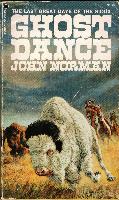





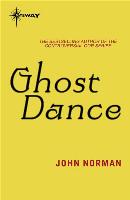

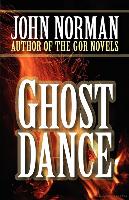

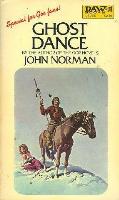
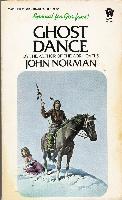
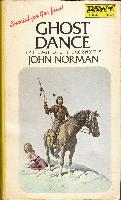
 Cover Gallery (edition)
Cover Gallery (edition)Here is a cover gallery showing all the editions and printings of Ghost Dance, sorted by edition. Click on any cover to see the book.
















 This page is copyright © 2000/2013 by Simon van Meygaarden & Jon Ard - All Rights Reserved
This page is copyright © 2000/2013 by Simon van Meygaarden & Jon Ard - All Rights Reserved